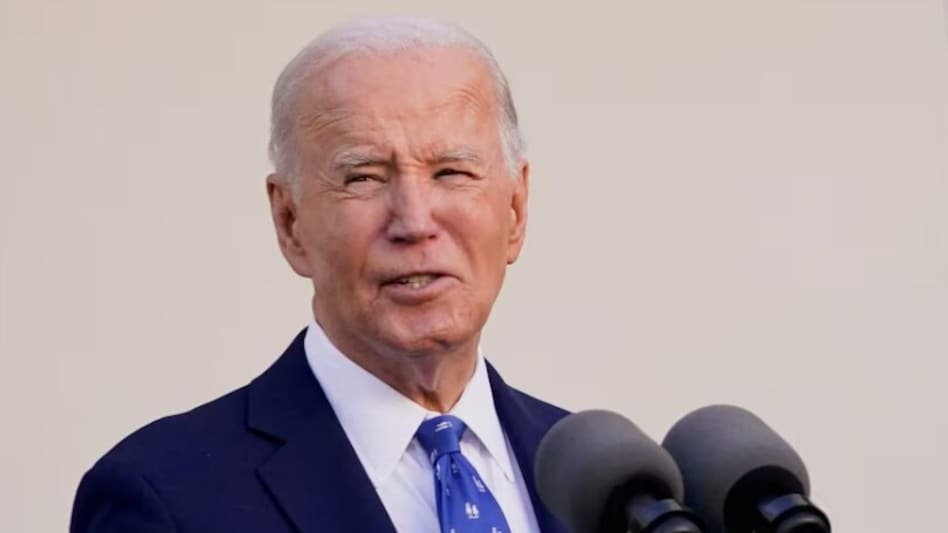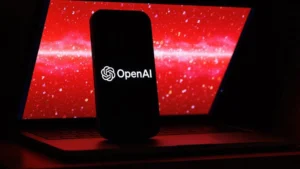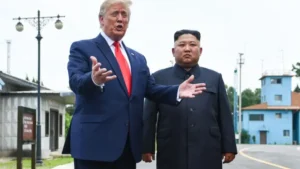US tightens AI export rules to restrict access to advanced technology for certain nations
US tightens AI export rules to restrict access to advanced technology -The United States has unveiled stringent new rules to control the export of artificial intelligence technology, aimed at restricting access for countries like China and Russia. Trusted allies will continue to enjoy nearly unrestricted access to US AI innovations.
The United States has introduced stricter regulations on the export of artificial intelligence (AI) technology, targeting to retain advanced computing capabilities within the country and among trusted allies. This move aims to prevent nations such as China, Russia, Iran, and North Korea from acquiring cutting-edge AI chips and technology.
These new regulations, which will come into effect in 120 days, will limit the export of high-performance AI chips to most countries. However, close allies like Japan, the UK, and South Korea will have nearly unrestricted access to US AI technology.
Commerce Secretary Gina Raimondo stated that the restrictions are intended to maintain the US’s leadership in AI development and chip design. She emphasized, “The US leads AI now, and it’s critical we keep it that way.”
US tightens AI export rules to restrict access to advanced technology
The rules impose strict caps on the number of advanced chips that can be exported to most countries, while trusted allies such as the UK and Japan will not face these limitations. However, 120 other countries, including Singapore and Saudi Arabia, will have capped access. Additionally, arms-embargoed countries like China, Russia, and Iran are completely banned from receiving AI technology.
New controls have also been introduced for “model weights,” a crucial component of advanced AI systems that influences decision-making in machine learning.
Major technology companies such as Nvidia and AMD, which manufacture many of the affected AI chips, will experience significant changes in their global operations. According to a report by Reuters, Nvidia has criticised the regulations as excessive, arguing that they restrict technology already widely available in consumer devices. Oracle expressed concerns that these rules could benefit Chinese competitors by limiting the market reach of US companies.
US-based cloud service providers like Microsoft, Amazon, and Google will need to seek special approvals to export AI chips for constructing data centres in certain countries. Once approved, these companies will have to adhere to strict conditions, including security requirements and guarantees of ethical use.
The US government has been working for years to restrict China’s access to advanced AI technology, which could enhance military capabilities. These new rules are an effort to close loopholes and ensure global AI development remains tightly controlled.
AI is regarded as a transformative technology capable of improving healthcare, education, and food security, but it also poses risks, including potential use in cyberattacks, surveillance, and the creation of advanced weapons.
The incoming Trump administration will determine how to enforce these rules. Some experts express concern that inconsistent enforcement could weaken their effectiveness over the next decade.
China’s Commerce Ministry has strongly opposed the new restrictions, stating it will take measures to protect its rights and interests.
Despite concerns from the industry, US officials argue that the regulations are necessary to keep pace with the rapid progress of AI, which is anticipated to have a significant impact on the economy and national security in the coming years
The US government has announced restrictions on AI chip exports to curb China’s technological advancement, which could have a significant impact on the global AI chip market, including India.

The United States has introduced sweeping new regulations limiting the export of artificial intelligence (AI) chips, tightening rules for companies like Nvidia, as it aims to curb China’s technological advancements. These new restrictions could have a significant impact on the global AI chip market, including in India. The new rules, set to take effect within a year, impose strict limits on the computational power of AI chips sold to most countries. Exceptions are made for allied nations adhering to the US-approved security and human rights standards. These new rules are designed to prevent adversaries, particularly China and Russia, from taking advantage of advanced AI technology for military or surveillance purposes.
“Managing national security risks requires trade-offs. This rule ensures our allies can access cutting-edge technology while safeguarding our interests,” wrote US commerce secretary Gina Raimondo in a blogpost by the White House.
The regulations build on previous chip export controls, with the goal of ensuring that AI development aligns with US standards. National Security Advisor Jake Sullivan said in an official statement: “This rule ensures that the infrastructure for frontier AI systems remains in America or allied jurisdictions, preventing offshoring similar to what occurred with chips and batteries.”
Nvidia voiced strong opposition to the new regulations. Nvidia, a leader in AI chip production, warned that the policy risks undermining America’s global technological dominance. “The rule threatens to derail innovation and economic growth worldwide,” said Ned Finkle, Nvidia’s vice president of government affairs. The company highlighted the potential unintended consequences of these restrictions, including driving customers to Chinese competitors like Huawei, which has made significant advancements in AI chips. Nvidia’s concerns align with broader industry fears that regulatory overreach could stifle competition.
Global reactions and EU concerns
China condemned the US measures, accusing the US government of disrupting international trade and innovation. The European Union also expressed apprehension, noting that the restrictions could strain transatlantic tech collaboration. “It is in the US economic and security interest that the EU buys advanced AI chips without limitations,” EU officials said.
The Indian angle
India, which has been pushing for AI and semiconductor manufacturing lately, could find itself at an advantage due to its strategic partnerships with the US. The restrictions exclude supply chain activities and gaming chips, but they bar exporting AI chips to nations like China and Russia. This policy could potentially redirect investments and resources toward countries like India, strengthening its position in the global AI and tech ecosystem.
With Thanks and Reference to:https://www.businesstoday.in/technology/news/story/us-tightens-ai-export-rules-to-restrict-access-to-advanced-technology-for-certain-nations-460655-2025-01-14 and https://www.indiatoday.in/technology/news/story/us-announces-restrictions-on-exporting-ai-chips-how-the-move-can-impact-india-and-global-tech-industry-2664446-2025-01-14







